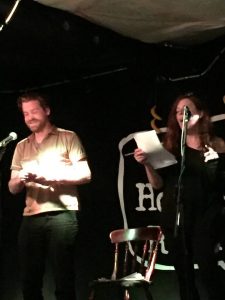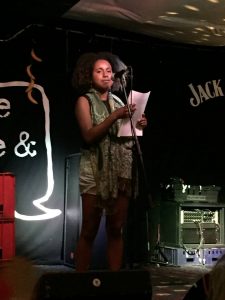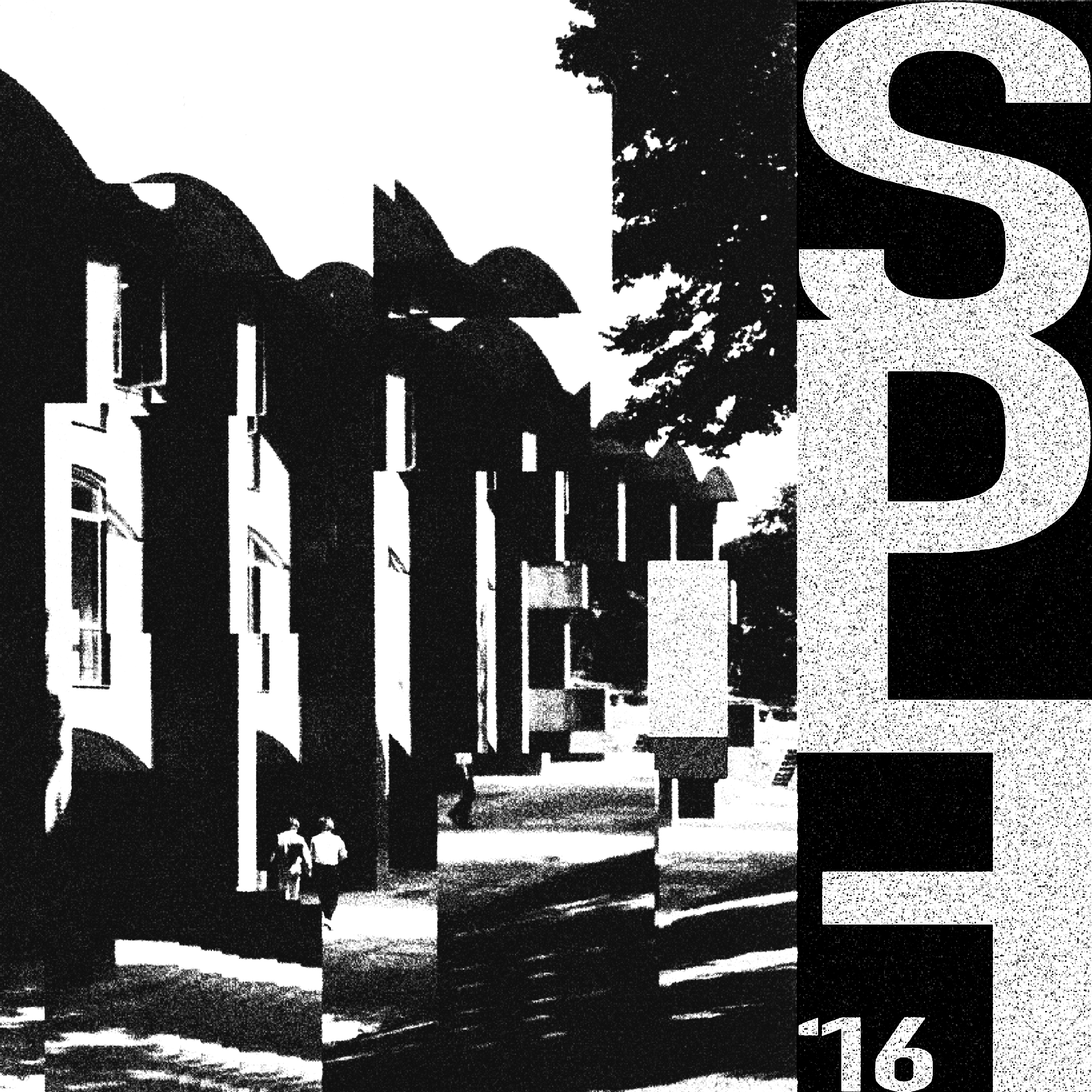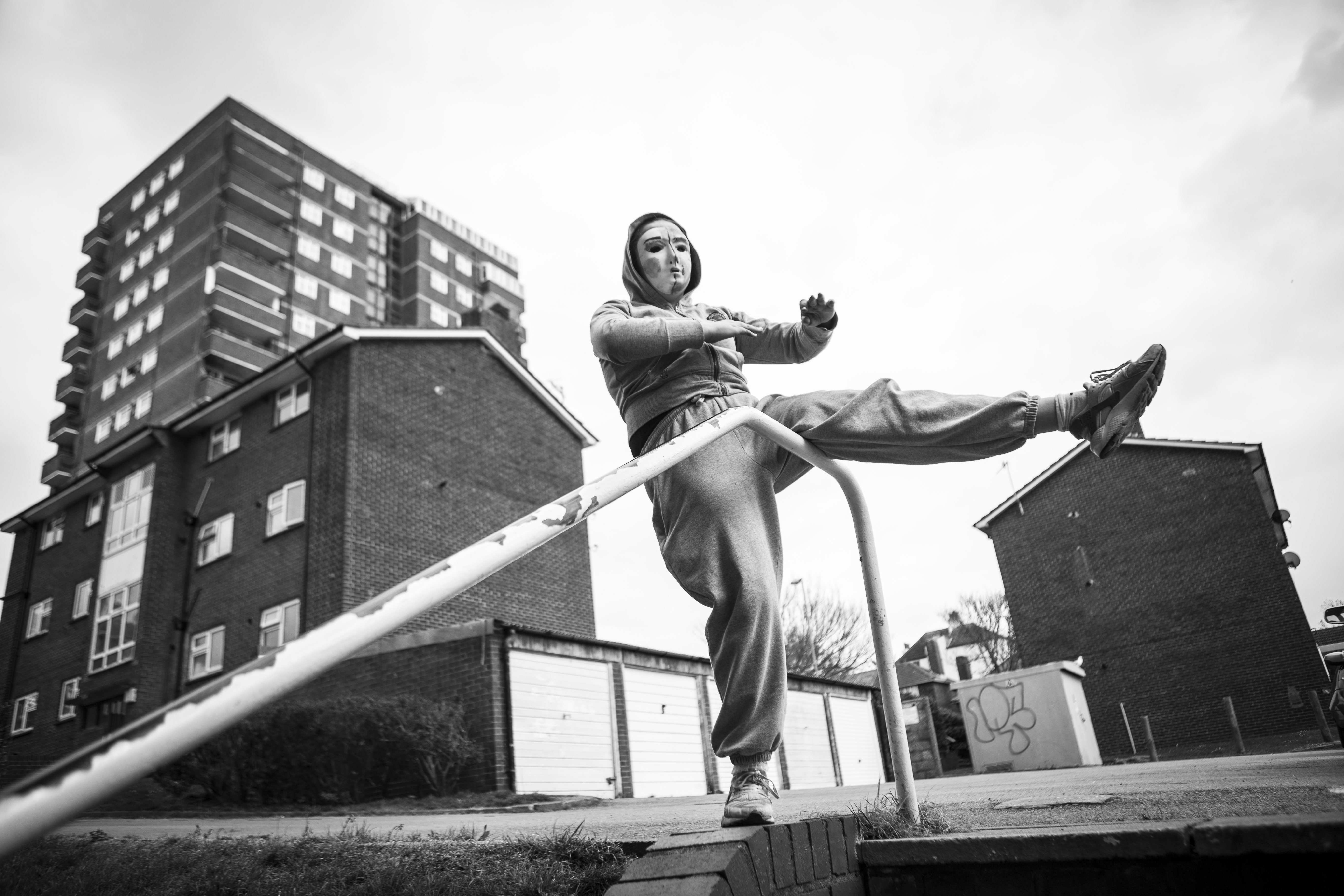7th Annual Sussex Poetry Festival poster. Image: Josh Cook.
Freya Marshall Payne
[This is a somewhat unorthodox review, but an experimental poetry festival is a somewhat unorthodox event.]
‘We’re not trying to reproduce the establishment’ is something Natalia Cecire, one of the organisers, said to me as we were chatting about the festival and this attitude has stuck with me. More than anything I want to conjure the atmosphere of the festival, and how the audience – and I amongst them – responded.
It was in fact hearing about this festival, or sensing the creative environment it produces and by which it is produced, which made me decide to come to Sussex. Throughout the year I’ve heard at different points that the festival is inspiring, and one Sussex student who was a part of the audience last year but this year was reading said that the festival for them was life-changing. I don’t think it would be going too far to say this is true: this is without a doubt the most creative, welcoming environment I’ve found in all my time in Brighton so far. I left wanting more – to listen to as much more poetry as I possibly could, but also to write. If a poetry festival leaving you with those dual hungers isn’t the best possible recommendation, I don’t know what is.
//
The Sussex Poetry Festival is now in its seventh year and took place over two days between 24th and 25th June in the trendy dark performance space of the Hope and Ruin in central Brighton. It is run by a quartet of academics and writers based at Sussex University: Keston Sutherland, Sam Solomon, Joe Luna and Natalia Cecire. When I walked into the gloomy room where the festival was to be held, filled with chairs grouped around little tables, one of the first things I noticed was a large book placed on a shelf beside the performers’ pamphlets: The Late Works of Prynne. Indeed, this is one of the threads of inspiration which links the organisers to each other and to their performers.
JH Prynne is the abstract, often confusing, experimental poet who taught Keston Sutherland at Cambridge. Prynne is one of those figures who polarises people; in the words of Guardian reviewer Robert Potts he is an ‘oddly totemic’ figure. There was certainly a totemic element to his heavy tome on the shelf at the Sussex Poetry Festival, and something of the cult readership seemed to me perhaps to seep into literature students’ interactions with Keston (always just Keston). Before the first readings started, I think I became aware of a generational tradition forming: although each year poets fly in from far and wide to read at the festival, there is also always a small pool of performers drawn from the Sussex English creative writing courses which are taught by Keston and Joe Luna. However, this does not mean that the dynamic was one of hierarchy. One of the best parts of the festival was the generous atmosphere of equality where writers, academics and audience mingled together chatting about anything and everything. (As I was sitting down on the first day, I overheard an animated conversation about a man who went to Bolognia to work for the socialist local government but has since returned and joined the British civil service, and as I listened the conversation shifted suddenly to literature…)
Threads of protest, disruption, references to Capitalism and high literature, multilingualism, technology and the human body, are common to the work of Prynne, Keston and the majority of the performers at the festival. The common thread is that these poets are experimenting, pushing boundaries, breaking, making collages.
After writing that paragraph, I found what the White Review had said about Keston: ‘his writings explode the familiar modes of poetry, fusing the lyric tradition with the high-octane languages of protest, stock market exchange and information technology, with the individuated vocabularies of biochemistry, geology and neurology.’ The Sussex Poetry Festival felt to me like a dialogue between poets who share similar preoccupations and explore them in their writing. The New Statesman said of Keston that he is ‘at the forefront of the experimental movement in British poetry’.
//
Something in common amongst many of the performers is what I can only think to call a ‘defiant’ lyricism. The warped, disjointed sentences and sounds coming from performers like Gwen Muren’s ‘glitch’ and Theodoros Chiotis’s ‘theory of the machine’ overpowered me so that I was left only half listening consciously yet fully engaged with the poem. Gwen’s poems on the page are maps of scattered words and letters; read aloud, they become brazen half-sentences and repeated sounds. They forced me to be emotionally engaged and to participate in stringing the sounds together myself.
I spoke half way through the second day to an acquaintance in the audience who said he did not write and was surprised with how inspired he felt by the festival – sounds were washing over him, he said, and he was finding himself thinking in the same patterns and rhythms as the poets. I was surprised to hear this: the readings were having the exact same effect on me. I would sit back, relax and participate in listening. My notes from those two days are full of names to look up, quotes which especially appealed to me – but also fragments of my own poetic thoughts and notes to myself which I found myself moved to write as I listened. None of the poems seem quite certain to interpretation, and this seems somehow to encourage creativity in those of us listening.
Although the Sussex Poetry Festival is funded by the English Department, it draws readers and audience from a great many places. The highlights of this year’s festival, perhaps, and my two personal favourites, flew over from America and the Netherlands respectively: Anne Boyer and Mia You.
Anne Boyer’s reading closed the festival, and she brought a quick, snappy energy to the stage. She was chatting, joking and started off her performance by handing out the lyrics to ‘Darklands’, bringing Sam Solomon onto stage for a duet and insisting that we all sing along with them. Then, from this jovial atmosphere she shocked us by suddenly starting to talk, in a tone which changed only gradually, of the highly-aggressive breast cancer which she had in 2014 at the time of writing ‘Death and the Maiden’, the pamphlet from which she would be reading. She said that she wrote to retain memories when she was scared of losing sections of memory each time she had chemo. ‘Darklands’, she revealed, was the working title for the pamphlet – and in one deft motion she blurred the initial light-hearted performance, traumatic stories, memoir and poetry. Boyer is a performer who is deeply aware of contradictions. Her poetry dealt loudly with love and death, and the treatment of women, especially creative women. Her poetry was a call to arms against patriarchal, traditional expectations of literature. ‘The men I loved said they were scared of me: it was because I was angry and well-known. This was bullshit, because they had so much power to begin with, but it was a cultural custom that their bullshit became philosophy and at that, doctrine.’ But conversely, Boyer used high culture to her own ends. Her pamphlet opens not only with a quote from Darklands, but also with one from canonical John Donne. Her ultimate appropriation and disruption of the canon was her final few minutes: she got the audience to join her in her own adaptation of a drinking song from Goethe. Her incredible energy and ability to confront expectations served as the perfect vehicle for her messages of subversion and survival.
Anne Boyer’s book, Garments Against Women, was published to high acclaim. The New York Times reviewed it thus: ‘Boyer has written a sad, beautiful, passionate book that registers the political economy of literature and of life itself.’

Mia You was another wonderful surprise. One of the main threads in the poems she read was her confused point of origin: she came to Brighton from the Netherlands, where she lives; but she was born in Seoul, South Korea; grew up in California; and now her parents have returned to Seoul. You’s poetry stood out from the common form of the other work at the festival in that the pieces which she chose to perform were more like stories, and were more straightforwardly accessible and intelligible than many others. The debate still rages amongst experimental poets as to when subversion becomes too hard to understand, and turns elitist. You seemed to be talking to us; one of her poems told us about her ‘birth story’ and difficult relationship with her other and thus also with her son. Her disruptions were in style and repetition. They made her voice seem clearer, as though the peculiarities of her own worldview and speech match through the structure of her poetry. You was insightful and moving – her own particular struggles may have been specific, but they are profoundly relatable and the humour which she injected into her discussion of family and love, was a welcome surprise. Jokes about reading Proust, writing in Moleskine notebooks and composing one’s own poetry while listening to someone else at a festival made the audience laugh, somewhat embarrassed. This was as close as You got to elitist – and her in-jokes revolved around mocking the very type of person who could be elitist. Listening to her was, all in all, a refreshing experience.
//
Amongst the Sussex student poets performing were Savannah Sevenzo, Jo Wilson, James Cole, Connie Cubitt and PhD student Tom Bamford.
Savannah has just printed a pamphlet called ‘Colonised Objects’, and she read extracts from this. It is a beautiful composition of layered pieces: she weaves a narrative of memory and growing up through two interwoven threads. One series of prose poems is addressed to herself at different ages, revealing her thoughts on race and gender as they developed; a second series of sections, this time clear poetry, tackles these same issues in the abstract. It is a powerful way to illuminate how every day life and politics intertwine.
Savannah finished her performance with a poem she had recently written for the victims of the Orlando shooting ‘when I couldn’t sleep’. She is relevant, honest, engaged on stage. This, I think, is the social role of poetry.

Jo, too, has recently published a pamphlet – in fact, they printed it the very morning of the festival! Perhaps this is a testament to the spontaneity and excitement of the environment. It is called ‘You Are a Riot!’. The stand-out moment from Jo’s performance, for me, was the moment where they seemed to playfully consider how best to be their very own riot on stage… They emerged, pondering ‘back in the days of the old avant-garde, clothes were cages and were disrupted…’ So Jo had planned to wear wings, and ‘demon makeup’. The problem here, they said, is that everyone is experimental – ‘everyone’s poetry is so experimental – but all the clothing is leaning towards normcore.’
This postmodern awareness of the old modernist avant-garde, this constant referencing of the past and of literary masters, seems to be connected to the admiration for Prynne. Jo went to Cambridge to see Prynne talk, and wrote a poem about it. In true Keston Sutherland fashion, they also included quotes from Rosa Luxembourg.
Other interesting performances pushed the boundaries of language: Jessica Pujol Duran in Catalan/Spanish/English and Theodoros Chiotis in English/Greek.
Rosy Carrick, Amy Evans, Lawrence Uziell, Ben Hickman and Cathy Weedon also performed. If only there were enough space to tell you what was so good about each individual performer!
My parting sense of the festival was one of being purely excited and inspired. Will I be going back next year? Most certainly.





One comment
‘We’re not trying to reproduce the [poetry] establishment’: the 7th Annual Sussex Poetry Festival, reviewed